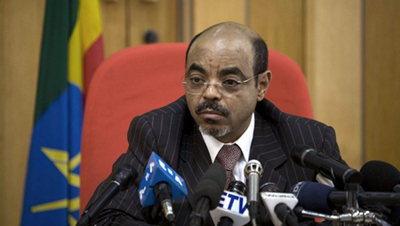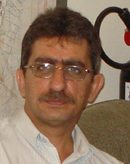China postpones installation of filtering software…for now
China’s Internet censors have blinked. In the face of opposition ranging from PC makers abroad to bloggers at home, the Ministry of Industry and Information Technology has backed away, at least for now, from a hastily conceived directive that all new PCs sold from July 1 should carry filtering software.
Stoking, not suppressing, dissent in China
A self-styled army of Internet users, Anonymous Netizens, has announced its intention to wage war on government censors, starting July 1. Global Voices Online has the text in English; it’s also here in Chinese. Whether their scheduled attack (its nature is not specified) will be felt or not, the irritation of the document’s drafters is…
A year later, impunity in attacks on Senegalese media
A year ago last week in Senegal, two reporters covering a soccer match were assaulted with tasers, handcuffed, and abused by police officers after the reporters refused to halt a post-game interview at Léopold Sédar Senghor Stadium in the capital, Dakar. A year on, Senegalese law enforcement has fallen short in bringing to account those…

In Ethiopia, prime minister’s words, actions not in step
This week, in an exclusive interview with the Financial Times, Ethiopian Prime Minister Meles Zenawi suggested that the press in his country freely expresses dissent. In fact, that is hardly the case. The Horn of Africa nation remains one of the world’s worst backsliders of press freedom.
With press council, Sri Lanka revives a repressive tool
There should be no doubt that the government is continuing its offensive against the media following its military victory over the Liberation Tigers of Tamil Eelam (LTTE). On Wednesday, Media Minister Lakshman Yapa Abeywardena confirmed what had been rumored for more than a week: The defunct Press Council, which was put to rest in 2002,…
Lee, Ling supporters hold vigil to keep case in spotlight
Last night, about 300 people gathered at San Francisco’s Academy of Art University for a vigil for U.S. television journalists Euna Lee and Laura Ling. Today marks the 100th day of captivity in North Korea for the women, who were arrested in March by North Korean guards while filming a story about refugees for the…
CPJ testimony focuses on Russian impunity
Nina Ognianova, CPJ’s Europe and Central Asia program coordinator, provided testimony to the U.S. Commission on Security and Cooperation in Europe on the pressing issue of impunity in journalist murders in Russia. The commission held a hearing this week on Russia’s human rights record. A transcript of the testimony follows:

An Iraqi in America: How I became a refugee (Part I)
On a cold winter evening–Jan. 29, 2004–I was getting ready to start my first night shift as an interpreter for the U.S. Army in Baghdad. It wasn’t really that cold, but my whole body was chilled. It was around 6 p.m. but already dark. I was an 18-year-old freshman in the College of Arts studying…
In Ugandan courts, important press battles
In Uganda last week, four journalists from the leading daily Monitor filed notice that they would challenge the constitutionality of the criminal libel laws before the Supreme Court, the country’s highest court, according to the newspaper’s lawyer, James Nangwala.

In a limbo between Baghdad and the U.S.
Before the war, I was an artist, a sculptor, and an art teacher in Baghdad. Life wasn’t so easy back then and I had to find another job in order to make a better living for myself and my wife and two kids, but even so, life was sweeter than it is now–I didn’t have…